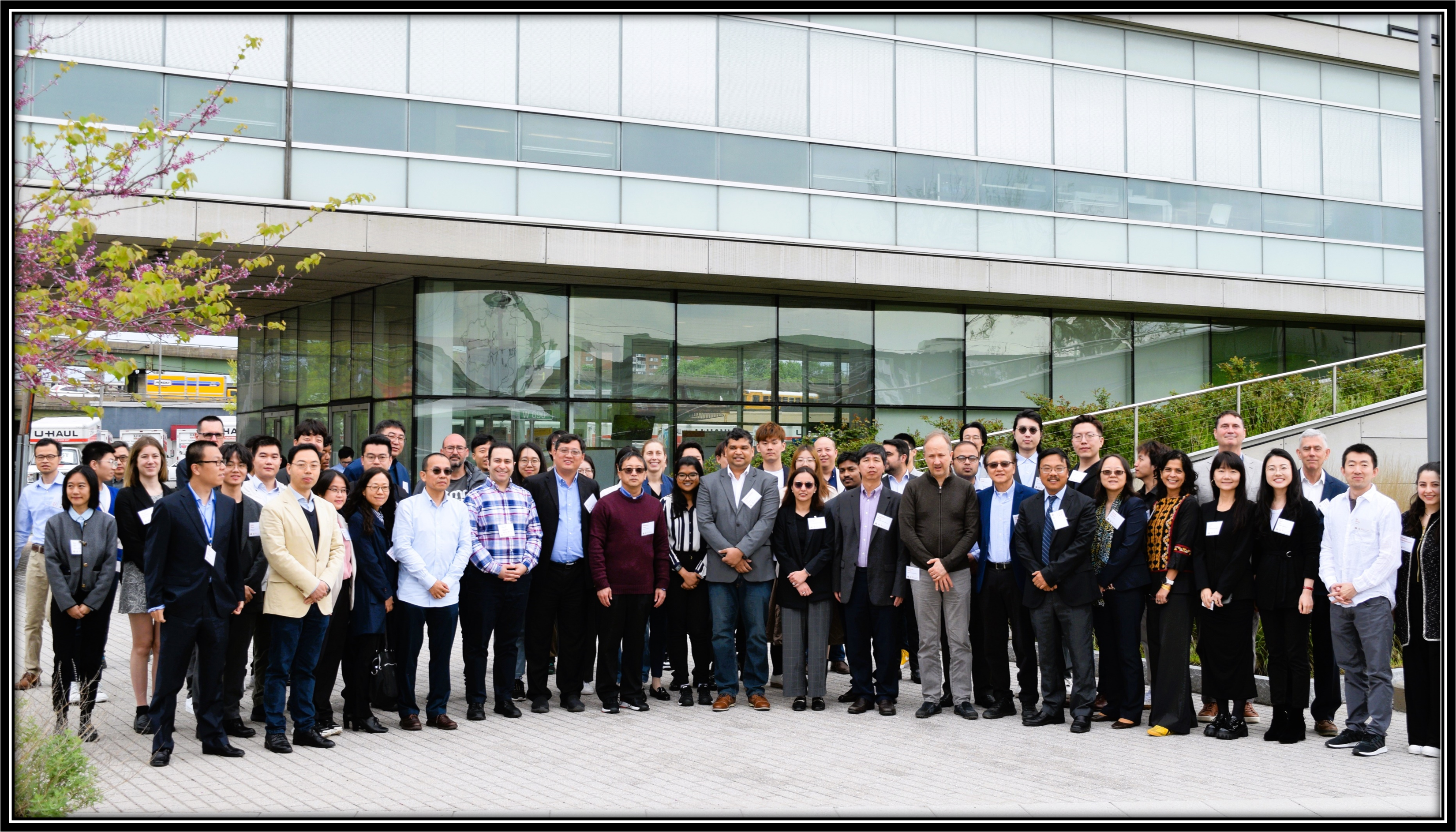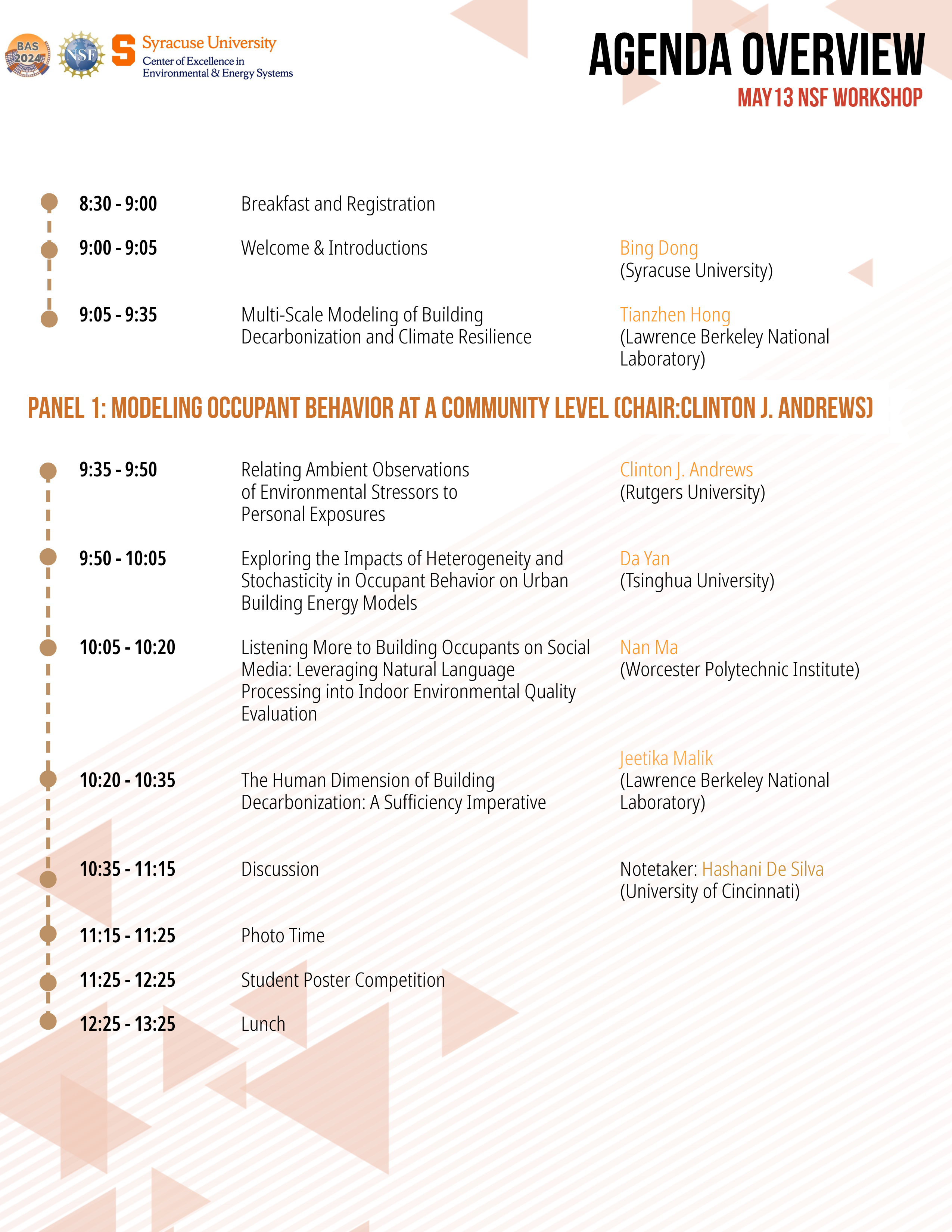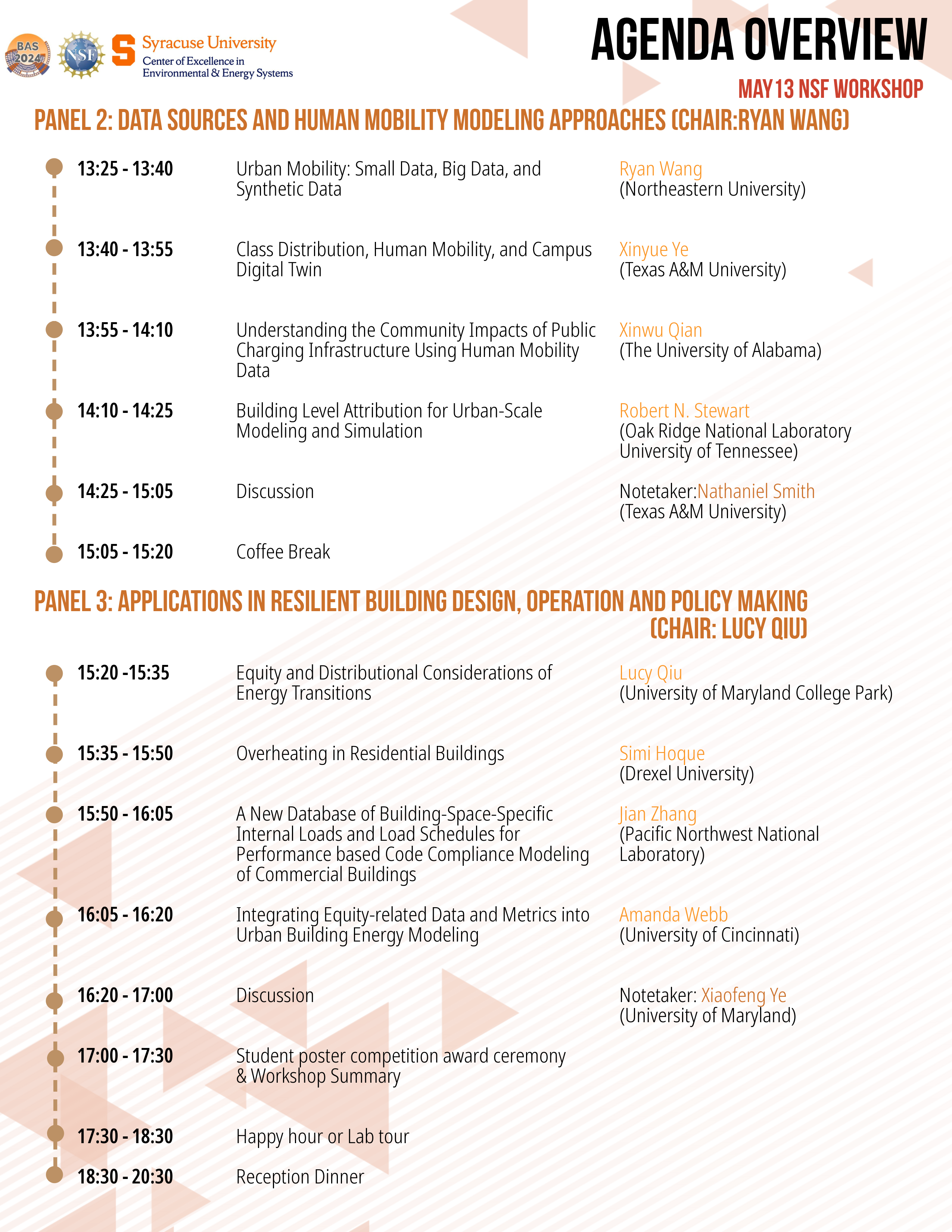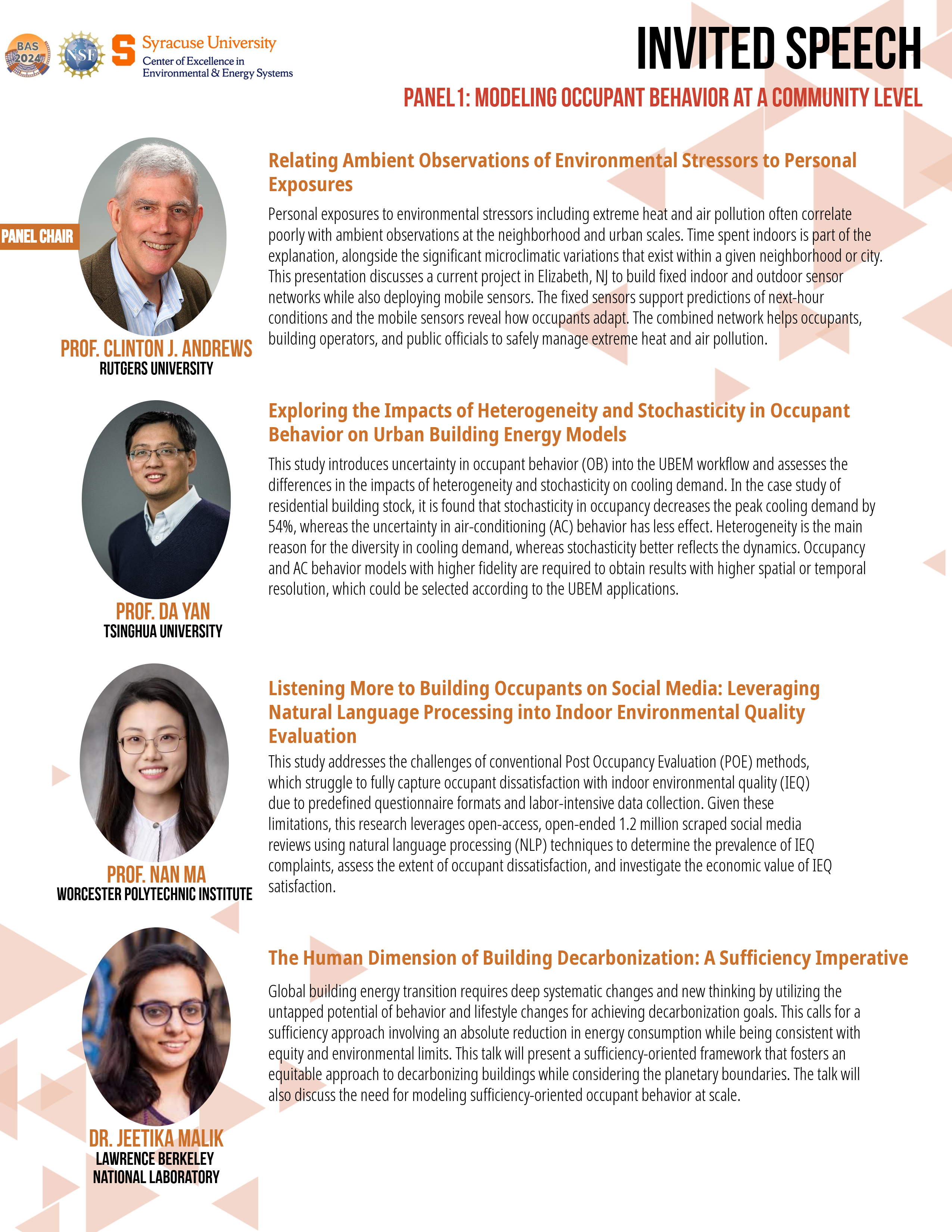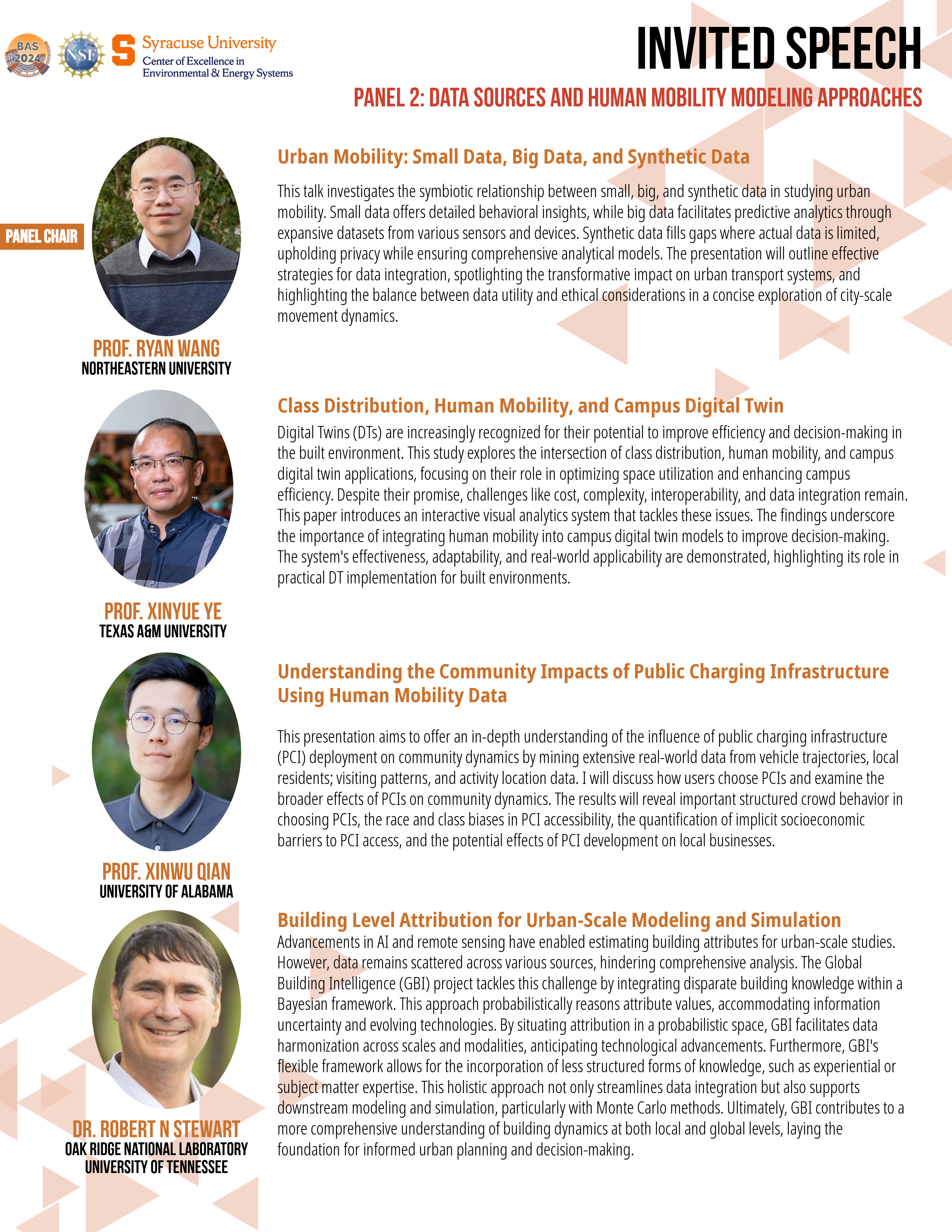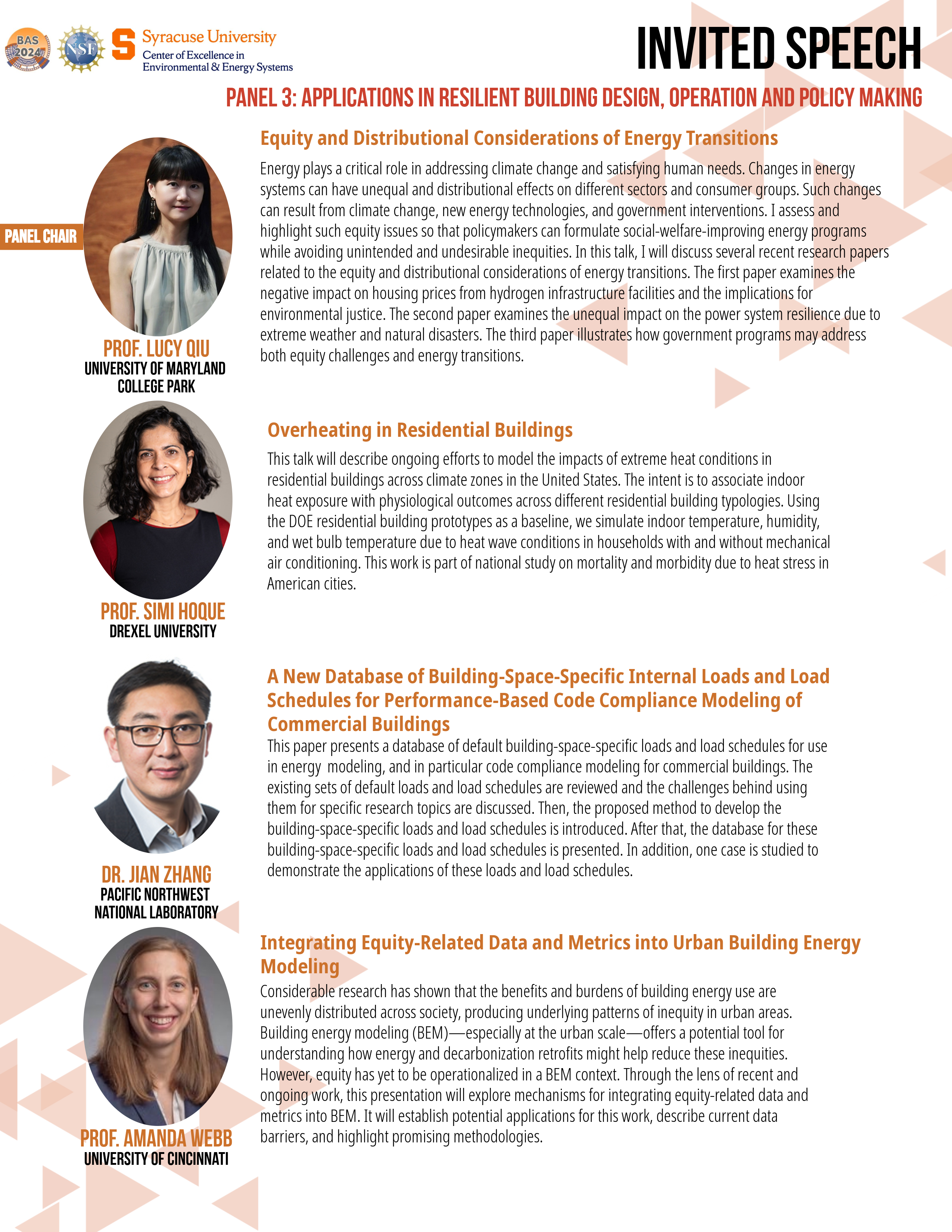NSF Workshop Outcome
"This Project Outcomes Report for the General Public is displayed verbatim as submitted by the Principal Investigator (PI) for this award. Any opinions, findings, and conclusions or recommendations expressed in this Report are those of the PI and do not necessarily reflect the views of the National Science Foundation; NSF has not approved or endorsed its content."
The International Workshop on Implications of Urban Scale Occupant Behavior for Resilient Building Design, Operation, and Policy Making was successfully held on May 13-14, 2024, in Syracuse, NY. This project has promptly improved the combination and collaboration between different disciplines, including building science, energy efficiency, energy use, data analysis, and policy making. The workshop gathered more than 60 experts from various countries and fields for in-depth interactions and exchanges of technical knowledge. Through the sharing and discussion of research outcomes and theoretical issues related to modeling methods, data sources, application scenarios, and policymaking in urban-scale occupant behavior, the conference successfully introduced information from non-building science fields. Additionally, the conference discussed the macro-level understanding of urban-scale occupant behavior, exploring how to better assist building design, system operation, and related policymaking in applications. This has significant implications for future urban planning, building standards, environmental assessments, and policy decisions. The research goal of this project is to advance the role of occupant behavior at the urban scale in aiding and enhancing building design, operation, and policymaking in the following three research areas:
(1) Modeling occupant behavior at a community level
Existing models for occupant behavior lack the granularity and scalability needed to properly reflect community-wide dynamics. Panelists discussed how to choose a focus for community-scale models and avoid overwhelming detail. They suggested taking a more bottom-up approach, allowing people to talk organically and collecting data first before deciding on the model. They advocated for a balanced approach that combines both top-down and bottom-up perspectives, using social media platforms to engage communities and gather insights.
(2) Data sources and human mobility modeling approaches
While urban environments generate vast quantities of data, significant challenges remain in using this data to model urban human mobility and occupant behavior. Researchers discussed the challenges for urban-scale big data and identified that the purpose of buildings poses a major challenge, as it critically informs the building's design and operation, yet it is difficult to ascertain from available data. All panelists agreed that
the primary issue is converting vast amounts of urban data into actionable insights. Despite the opportunity for multidisciplinary collaboration, personal interests sometimes hinder data sharing, complicating the utilization of big data. The challenge lies in integrating local knowledge, such as familiarity with a physical space, into the data. Understanding and interacting with an environment goes beyond what raw data can provide.
(3) Applications in resilient building design, operation, and policy making
Some problems about trade-offs in building design and policymaking and the appropriate way to convince policymakers using research results were discussed. Panelists discussed the use of personal air monitors in public housing projects to empower residents to collect data and understand their own exposures, fostering awareness and prompting action. Also, the importance of public awareness and education was highlighted, encouraging students to engage with their families and communities to raise awareness about environmental issues.
From an educational perspective, the conference also included a student poster competition (with more than 20 students participating) and funded 8 Ph.D. students from different universities in the USA to participate. Also, the workshop was partly open to local participants, including students and researchers from Syracuse University, SUNY College of Environmental Science and Forestry, etc. The students engaged in exchanges and discussions with experts, scholars, and other students from around the world through this workshop.
In summary, the project has made significant contributions to its primary disciplines through advances in knowledge, research methods, and educational practices. These contributions are expected to have a lasting impact on the fields of building science, energy efficiency, and sustainable urban planning, benefiting both academia and society..
